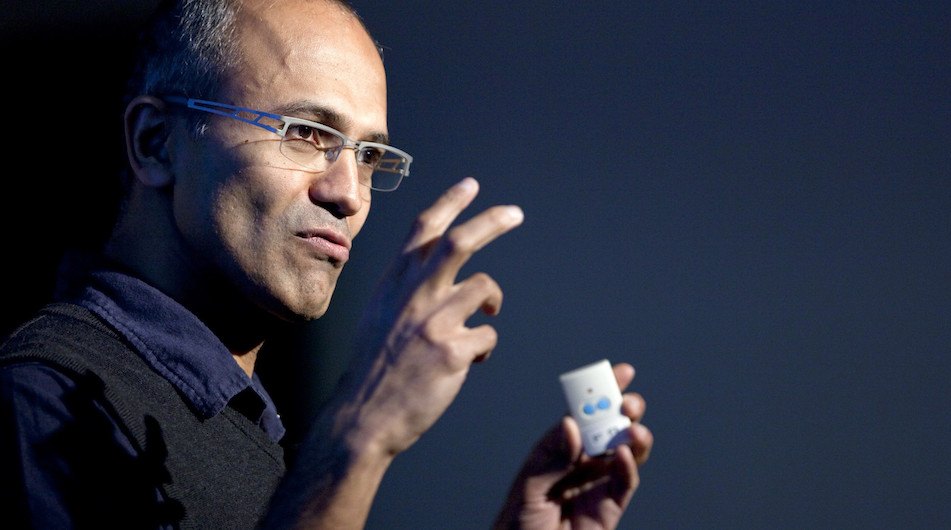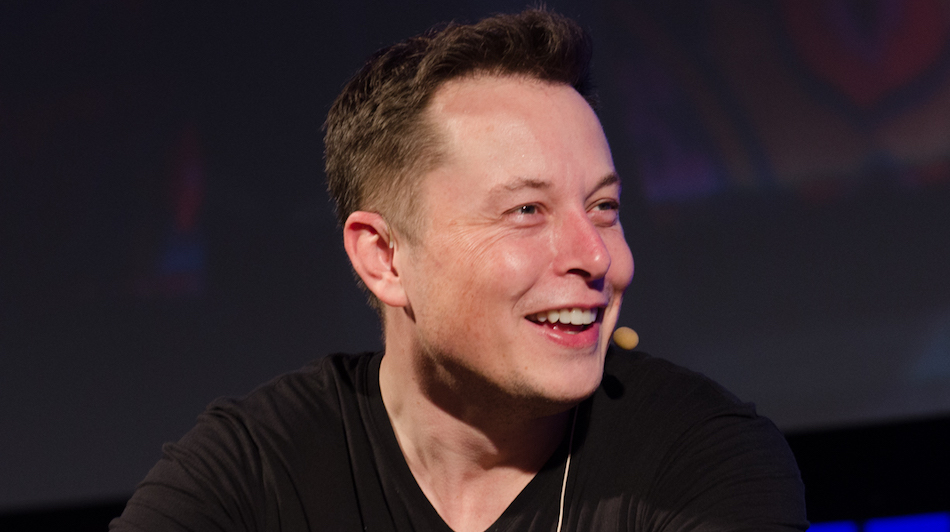
Satya Nadella, CEO of Microsoft. Photographer: David Paul Morris/Bloomberg. Photo credit: Johannes Marliem.
“In a country like India, where there is going to be a services-led economy, there are going to be many, many jobs. There are many things AI [artificial intelligence] will never be able to do… When there is a lot of artificial intelligence, real intelligence will be scarce, real empathy will be scarce, real common sense will be scarce. So, we can have new jobs that are actually predicated on those attributes.” – Satya Nadella
The Microsoft CEO, who is in India this week to promote Microsoft’s Azure cloud computing platform, made the statement in an interview to the Economic Times. One of Azure’s selling points is its integration with Microsoft’s Cortana Intelligence Suite, giving its cloud clients AI capabilities for personalization and a lot more.
Satya Nadella also spoke about the exciting possibilities of AI in education and healthcare. But his remark on its impact on jobs is particularly interesting in the context of concerns expressed by other tech leaders. Contrast Satya’s statement with what Elon Musk, founder and CEO of Tesla and SpaceX, said last week at an event in Dubai:
“What to do about mass unemployment? This is going to be a massive social challenge. There will be fewer and fewer jobs that a robot cannot do better [than a human]. These are not things that I wish will happen. These are simply things that I think probably will happen.” - Elon Musk
Satya Nadella is right that new jobs will emerge in an artificially intelligent world. But how many of the hundreds of millions whose jobs can be automated will qualify for new jobs that require human intelligence? I visited a warehouse in Bangalore recently where robots do the sorting and tagging of packages that human workers did earlier. Some new jobs have come up there to manage the process, but they comprise a fraction of the number employed before automation.
Think of sales counters at retail stores, routine work in banks and government organizations, various jobs in hotels and restaurants that can be automated, and the transportation industry in an age of self-driving cars that Elon Musk’s Tesla is bringing to us faster. Who will prepare people for the new job requirements of a world where artificial intelligence is ubiquitous?
See: Hopes and fears over AI alliance of Microsoft, Google, Amazon, IBM, Facebook

Photo credit: Dan Taylor/Heisenberg Media.
There are no easy answers. Elon Musk suggests that a universal basic income should be provided. The money for it could come from the rise in efficiency and output due to automation. But it would still be a challenge to give meaning to people’s lives, which often comes from their jobs.
Microsoft’s co-founder Bill Gates says in a recent interview to Quartz that robots should pay an income tax like humans do. The tax collected from companies that automate jobs earlier performed by humans could be used for training people to do the new jobs that Satya Nadella talks about.
See: Artificially intelligent pathologist bags India’s biggest funding in healthcare AI
A recent McKinsey study put another spin on the impact of automation on jobs. Instead of identifying specific jobs that are likely to be lost in the years ahead, it looked at the activities in various jobs that can be partially automated. In other words, even a highly skilled and well-paying job has a set of activities that can be automated. The study says 30 percent of the activities in 60 percent of jobs can be automated.
See: Half the work people do can be automated: McKinsey
The study, which covered 45 countries and 80 percent of the world’s workers, says India and China (the two most populous countries) will see the biggest impact of automation, potentially affecting 600 million workers – twice the population of the US. Industry body Nasscom sees a 20-25 percent reduction within three years in India’s IT services jobs, which made Bangalore the outsourcing capital of the world.
The transition to the new “empathetic” jobs requiring human intelligence that Satya Nadella foresees will be painful. But as Elon Musk says, it’s inevitable and we should prepare for a robotic world that is coming at us faster than we imagine.
This post Will robots take away jobs? Satya Nadella and Elon Musk disagree appeared first on Tech in Asia.
from Tech in Asia https://www.techinasia.com/robots-jobs-satya-nadella-elon-musk-disagree
via IFTTT
No comments:
Post a Comment